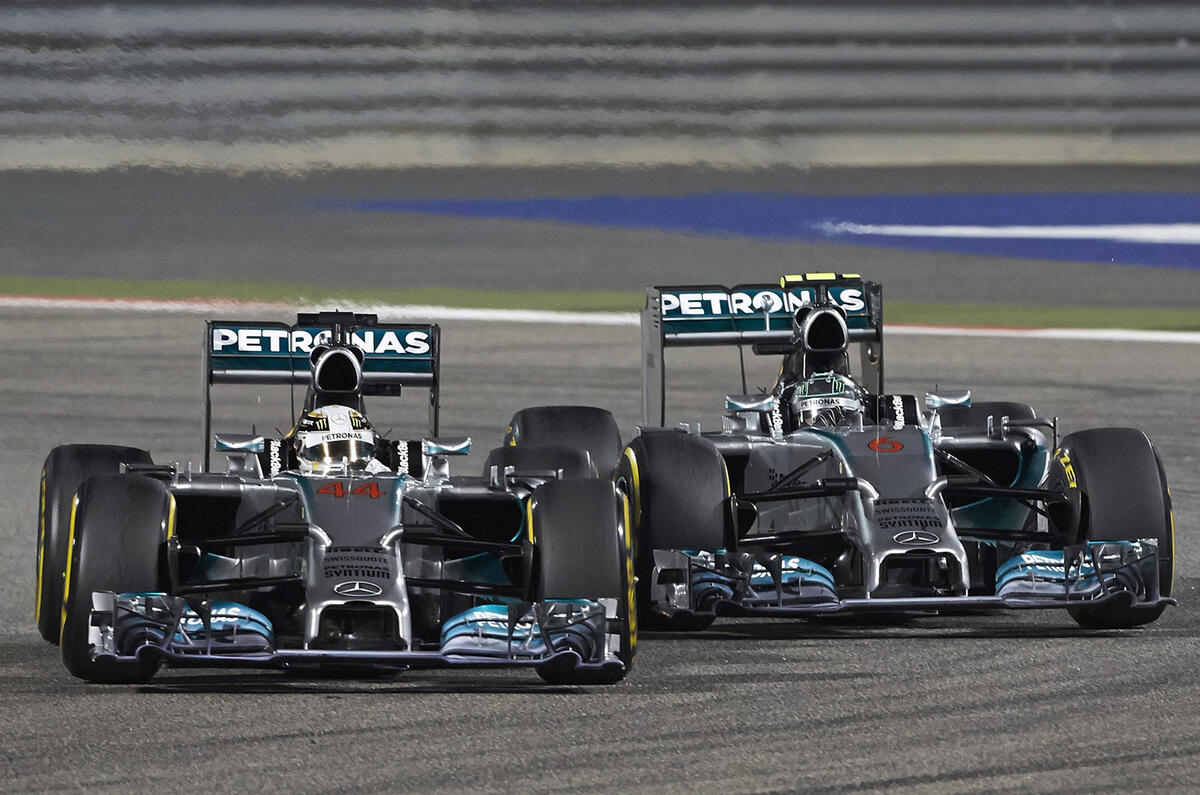Word is beginning to leak out about how Mercedes-Benz has managed to produce such a successful Formula 1 car this year.
It is so successful in fact that Red Bull, Ferrari and even the sport’s commercial chief, Bernie Ecclestone, are complaining that the racing is dull, the drivers don’t have enough input, the noise is no good and so on.
The bad news for them is that thanks to Mercedes allowing its driver to race, which Ferrari never did in the Michael Schumacher Era, we have seen a great race in Bahrain, not just at the front but also right down through the field.
So what is the secret? It seems that Mercedes' engineers at Brixworth and Brackley worked closely together to create a unique approach to the new engine formula. A turbocharger uses the energy from exhaust gases to increase the density of the air going into an engine, thus producing more power.
The pressures and temperatures generated by such systems mean that a large intercooler is generally required to cool the engine intake air after it has been compressed by the turbocharger.
It seems that Mercedes' engineers cleverly decided to split the turbocharger in half so that the exhaust turbine at the rear of the engine is a long way from the intake turbine at the front of the engine. The two are linked by a shaft that runs between the two banks of cylinders.
This helps reduce the temperature on the compressor and intake side, meaning that there is less need for an intercooler, and so the unit can be smaller and that in turn means that the team was able to be more aggressive with its aerodynamic packaging. It also reduces the length of the intake pipework, which can result in a faster engine response.
There is further additional advantage in the system in that moving the compressor to the front of the engine meant that the transmission could be moved forward slightly, which means that the car has a better centre of gravity and so will handle better.
The bad news for Mercedes-Benz's rivals is that the system cannot be copied because the 2014 engine designs are now frozen, according to the F1 regulations, which means that the rival engine companies will do better if they abandon development work on their current designs and concentrate all their efforts on the 2015 engines.




Join the debate
Add your comment
I wonder if we'll see the
Not just the turbo.
If Ferrari complains enough the FIA will cave
I, too, wonder how long it would take for the other teams to get a new motor tested and under the bonnet. I am sure they all have teams working on new engine designs for next year but as they all had some problems with getting the new engines ready for this year I can't see anything positive happening in the development until late summer.
However, who would bet against the FIA introducing a weight penalty a la touring cars in the near-future for cars that win? Genius is seldom rewarded for long in the circus.